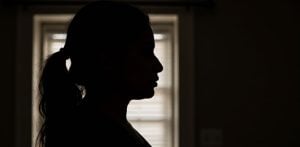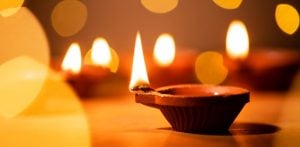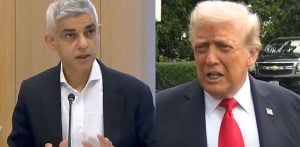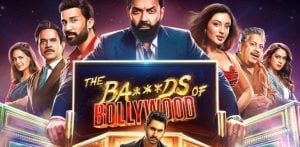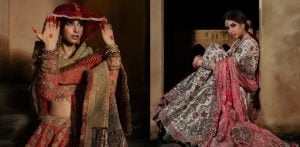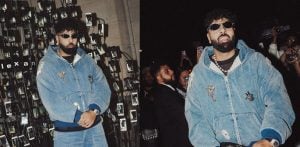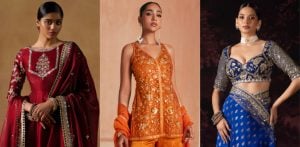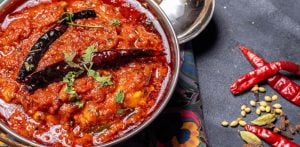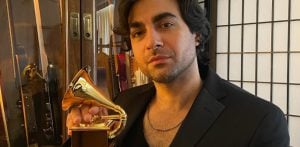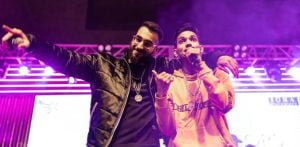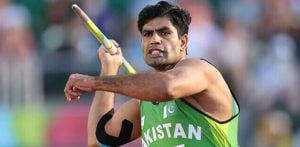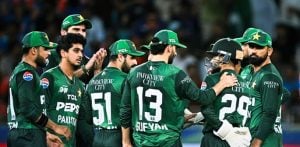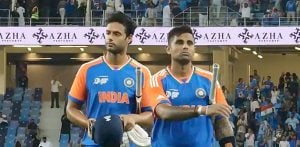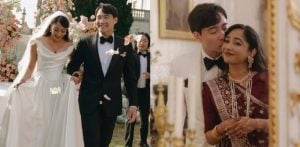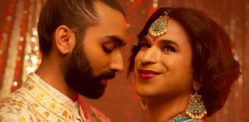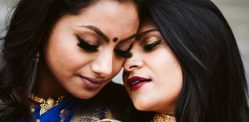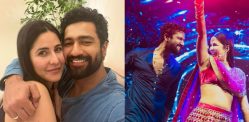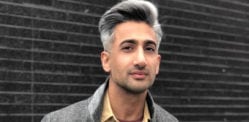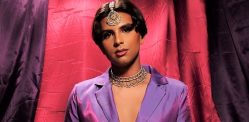"We need to seek out our own forms of engagement"
Pride month started in the 80s following the Stonewall riots. It came about to spread awareness of the LGBTQ+ community and advocate for their rights.
Since then, it has become a mainstream phenomenon. The occasion has been marked and celebrated in numerous ways.
We see events such as marches, parades and a wide variety of other events. These festivities seek to bring awareness to LGBTQ+ issues and foster queer communities.
But Pride month, despite being a global event, is a fairly western thing.
Queer people have also always existed before Pride and there have been many different forms of cultural expressions of queerness.
This is especially true for South Asians. Here there is a long queer heritage that is noted and celebrated in all forms of media.
So, how do Desi LGBTQ+ people celebrate Pride Month? DESIblitz spoke to five queer British Asians to find out!
How do you usually celebrate Pride Month?
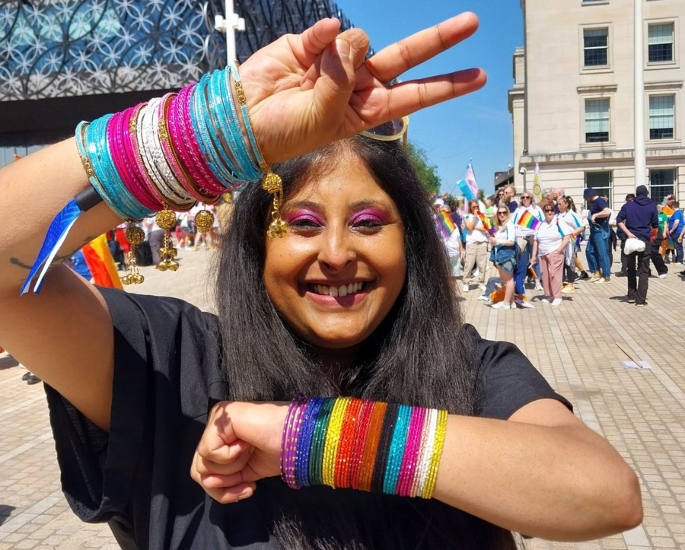
It is apparent that most Desi queer people do mark the occasion in some way.
People such as Nikita and Karan go to physical events, whereas people like Rehka* and Rahul* don’t tend to.
Nikita in particular, who is very proud of her identity, doesn’t just celebrate during Pride.
However, during it, she will go to “events, festivals and gatherings which are specifically held for the LGBTQ+ community”.
For Karan, Pride is a very important occasion. He discloses that:
“Pride is a time when I come together with my community so we can honour and embrace our identities.”
At the same time, it is “also [about] recognising our struggles and accomplishments”.
He usually is “attending parades and hosting and attending Pride parties.”
Saima Razzaq, who’s the Director for Change and Communication for Birmingham Pride, views the month “as a form of protest”.
She also sees it as “an opportunity for people to engage on LGBT topics”. This is especially able to happen in “work, home [and] education settings”.
For Saima, it is necessary to combat the idea that there is an “agenda” with LGBT identities. She feels it is a term used too much as of late “amongst our South Asian communities”.
LGBT people exist “within our communities” and as such everyone in it should “feel safe and welcome”.
But not every Desi queer person celebrates Pride.
For instance, Rehka, who does not tend to mention their queer identity to others, feels the need to “avoid everything about [Pride]”.
Many queer British Asians find that they have to hide their identities to get by, as Rahul states:
“Though I love being bisexual, I find it hard to express that in the real world.”
“I’m in a weird state of being out to some friends and colleagues, but not family.”
This weirdness for him exists “especially within the Desi community”.
This was echoed by Rehka, who mentioned how there is a commonality for many queer British Asians. This is that while they want to feel pride, they “can only express that pride in certain places”.
Even then, it is a difficult task to know where one is able to express this. So Rehka, as a bisexual, finds that “it’s kind of a part I can ignore”.
This differs from Rahul, who commented that whilst he doesn’t overtly celebrate Pride, it’s not something he avoids. In his words:
“I watch queer media and chat with queer friends online during the month.”
Kajal*, who goes by all pronouns, doesn’t “usually celebrate Pride Month in any specific manner”.
They have only “come out recently” and therefore are still navigating how to celebrate accordingly.
Physical Events v Online Communities
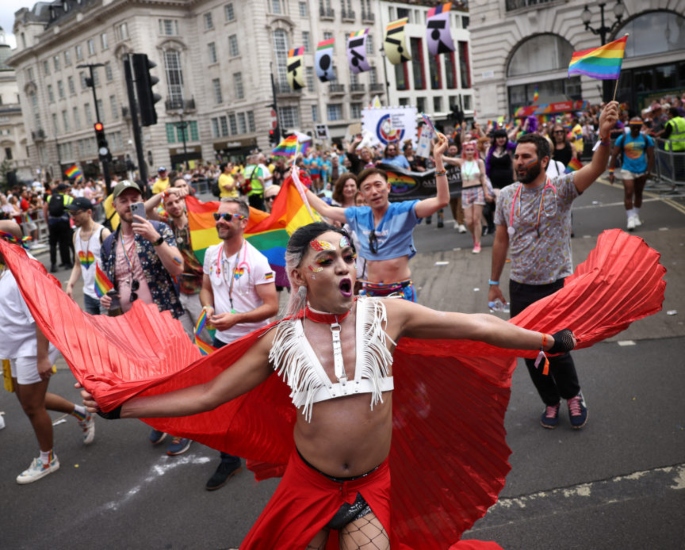
Nikita “prefers physical events”, especially those which involve “seeing [her] friends” and “meeting new people”.
Kajal “prefer[s] physical events to online communities”.
Whilst Karan finds that “physical events are a lot of fun”, he finds that social media is a great way to celebrate Pride. This is because it allows queer British Asians to:
“Amplify our voices and share stories of inspiration and resilience.”
There are countless social media pages and forums that exist to accommodate queer Desi people. From Instagram to Reddit, we see online communities thrive.
For Karan, however, it goes much further, as social media allows people to “reach a broader audience and spark much-needed conversations”.
This is especially important as there has been a rise in hatred towards those who identify as LGBTQ+.
For example, data journalist Felix Richter, from Statista, looked at data from the UK Home Office.
The police recorded double the hate crimes on LGBTQ+ people from 2017/18 to 2021/22. From under 15,000 to just over 30,000.
Rahul also finds that online spaces give him “much-needed solace”.
This is because he is able to “find queer affirmation” with online communities online unlike public spaces where this is a tad harder.
It doesn’t appear that Rekha really interacts much with either physical or online events. Though they did once attend a Pride march in Glasgow.
This was not a particularly good experience for Rekha.
She recalls having to spend “the whole time wearing large sunglasses” as she was trying to hide away, Especially as they passed a place of worship for their faith.
One of her friends even jokingly remarked:
“How can you go to a Pride festival and not be proud?”
Whilst she sees the moment in a more humourous light now, she notes how her experiences with her family affected her at the time.
She was “pretending to be straight” and also having to “pretend to agree with homophobic and transphobic” things her family was saying.
This is a thing many South Asians have to do, whether they are a part of the LGBTQ+ community or not.
A Need for Queer Desi Pride Events?
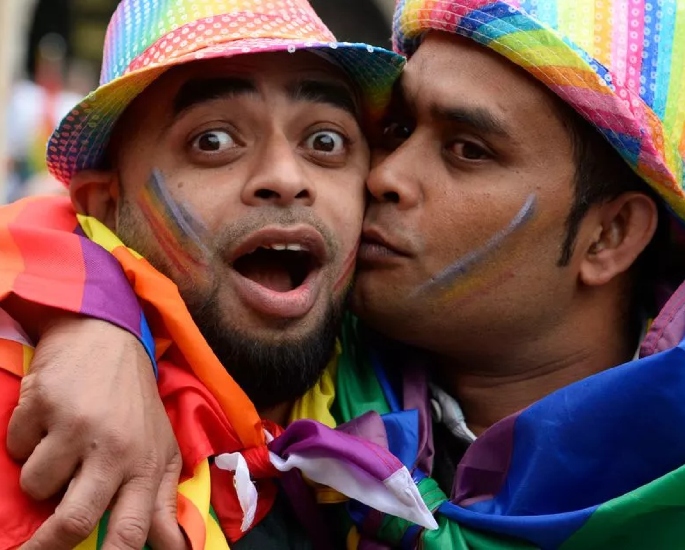
When it comes to feeling represented at mainstream Pride events, Desi queer people seem to have a nuanced understanding of this issue
Karan hits on this, noting:
“Pride events often celebrate the overall community.
“But I know friends who feel that certain aspects of our identities and experiences are not fully represented.”
Whilst most queer British Asians have interactions with mainstream Pride events and organisations, we quickly see a dilemma.
That is the cultural differences between white queer and Desi queer experiences.
Whilst Nikita feels represented at mainstream Pride events, it is only to “a certain level”.
She mentions a “fear of doing too much” and “not wanting to attract too much attention at Pride events.” She further clarifies:
“It often feels like a competition because many of us are comparing ourselves to others.”
Queer people are a minority already, but Desi queer people are two different subsects of the minority.
There are fewer of them, and as such there could be people wanting to fit in the archetypes more at these events.
Rekha’s view seems to hitch on this, in a different way. In conversation, she cites intersectionality.
Intersectionality is the view that oppression exists in different, intersecting ways for different communities.
The term was coined by American civil rights activist and UCLA professor Kimberle Crenshaw.
Crenshaw first applied this model to black women and how they faced different kinds of oppression for being black and a woman. Though it has since been used more widely.
Rekha highlights how “it’s the intersection between race and being LGBT” and how “not everyone gets it”.
To go further, there are often times when Desi queers feel alienated from both Desi people and white queer people. This gets further complicated when considering faith.
Kajal provides a very fascinating view. She feels:
“I think we’re adequately represented at Pride events.
“But Desi queer Pride events require much more local flair.”
This interesting insight highlights how more celebrations should be tailored for local areas to emphasise a stronger sense of togetherness and awareness.
Saima takes the view that as South Asians:
“We need to seek out our own forms of engagement and celebration [for Pride].
“Especially given that our South Asian community is othered wherever we go.
“When it comes to culture in western society, authentic South Asian culture seems to be classed as the lowest denomination.”
For Saima, where she doesn’t feel represented is in having to deal with both “racism and Islamaphobia”, which is difficult to overcome when you are part of the LGBTQ+ community.
She doesn’t feel that “western society as a whole” sees value in “narratives from South Asian working class backgrounds”.
She finds that when “negative and often misguided perceptions” about the South Asian community are challenged, “people seem to get very upset”.
The Joy of Pride Month
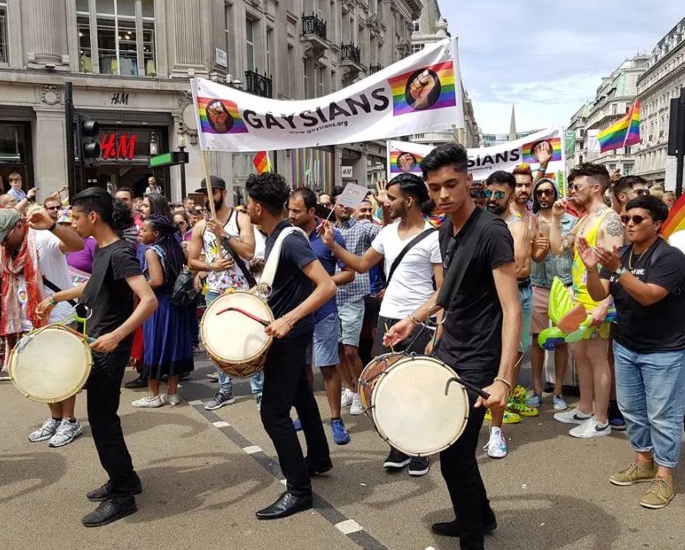
Most queer British Asians have attended physical Pride events. Kajal has attended Namma Pride in Bengaluru and hopes to go to more events in the future.
For Saima, she feels that Birmingham Pride is particularly the forward-thinking event in the UK and enjoyed working there in 2023.
In her words, she couldn’t be prouder to be a Brummie and feels the city demonstrates how “truly diverse, inclusive, and accessible Pride is”.
Nikita has gone to a “few Gay Pride events in Manchester and Sheffield”, adding how she has been in a fortunate position as a younger person.
Rekha, as previously mentioned, went to a Glasgow Pride march.
Rahul has not attended any specific Pride events, though mentioned how he “has attended non-Pride related events with [his] universities’ LGBT+ association”.
Desi LGBTQ+ people celebrate Pride month in a wide variety of ways. Some feel very comfortable in being open about their queerness and all the nuances involved.
Others feel uncomfortable in celebrating Pride openly, as they find it troubling to deal with being both Desi and queer.
Both offline and online spaces seem to be vital for all Desi queer people. Stigma is faced by all Desi queers in society still, and it should not be that way.
We must continue to advocate for and on behalf of Desi queer people during Pride month, and they must be accepted.







